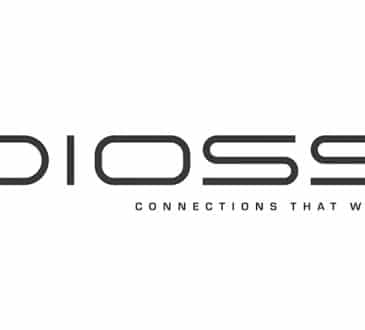Rethinking Innovation In The Time Of AI

As new or improved LLMs are launched daily, how might a CEO or an executive guide their innovation teams and integrate AI into their innovation process?
Here are some starting points to consider when managing innovation projects in the next few months, understanding that generative AI is constantly evolving.
- Be safe and protect your IP, data and strategy. Policies from AI providers and legislation are constantly evolving so teams need to understand the risks associated with using AI and proprietary information. They can decide which information might be provided when using a platform with AI and what should be kept unshared. Your data is only as safe as the “weakest link”. For example, employees who use ChatGPT (unless it is the Enterprise version) need to understand that the information they input may be used for training and therefore may become public.
- Check the outcome and be aware of hallucinations, fake data and convincing AI-generated presentations based on inaccurate information. It may look right but checking and triangulating with what you know is critical to avoid costly errors.
- Consider the level of innovation. AI models are trained using past data so predicting the outcome of a very innovative idea can be challenging. While involving AI with small tweaks on an existing product (think a green tea variation of a chocolate bar) may be somewhat easy, it will be more challenging to identify and implement major innovation that does not exist (think back to the concept of Airbnb). There is a lot of talk about the use of synthetic data (which means, data generated by the AI itself rather than based on real-world events) for example for testing concepts. At this stage you may want to be cautious about using this data, particularly with major innovation.
- One easy place to start with AI is to help your team compile and summarize publicly available data and provide more options.
Today, AI may be best used to supplement the human team. Consider the “sandwich concept”: start with the human team to define a project and direction, complement with AI generated data, suggestions, and perspective and end with the human team to make the final decisions on what is important and relevant.
AI can be very helpful when diverging (that is generating options), throughout the innovation process; AI:
– Helps provide data, organize the information and generate insights; find information about a market and competitors.
– Offers new ideas to complement those generated by your team, or suggest new areas or approaches.
– Develops ideas into concept options.
– Suggests alternative ways to create a launch plan.
You may want to be cautious when converging (meaning selecting your options) and making decisions. While AI can help quantify options, making decisions (for instance, prioritizing an insight, selecting ideas or concepts to move forward or finalizing the launch) may be best done by humans, particularly considering that the LLMs are a black box, so you don’t know how AI generates its recommendations - Experiment to learn.
Experimenting and starting small will provide learnings while minimizing time, cost and risks. You could play with the existing LLMs without investing too deeply since they keep changing and improving (with the caveat around confidentiality). See what works and what doesn’t for your teams, spend time on lessons learned and keep iterating. - Consider optimizing the use of the LLMs by working with Prompt Engineers.
Prompt Engineers may help create better prompts or create mini programs and series of prompts that can be reused for different projects, saving time and providing better results. - A skilled human facilitator is critical to foster collaboration.
AI can suggest process steps and tools, but it is not a skilled facilitator. Because innovation has a high likelihood to fail, emotions run high and a trained facilitator manages the tensions and guides the team to collaborate more efficiently. The facilitator will move the team through the process, using the appropriate tools (including using AI when appropriate) while addressing team dynamics and supporting collaboration. - Everybody may have access to the same AI tools.
Unless you are creating your own LLMs or use a general LLM but then train it with your own data, the outcome you generate could also be generated as easily by others. If it is fast for you, it is fast for others too. And predictions based on the current world may not work as well when all your competitors are also innovating at the same time. It is important to do due diligence in testing and validating your innovation. - Demands are still driven by real buyers and limited by value, time, and money.
Bringing value to real users should still be at the core of your innovation process. Your process should include a deep understanding of the challenges, jobs, pains and needs of your users and ways to validate your solutions in real life. At the end of the day, there is only so much one can purchase and /or spend time using so your innovation needs to provide real value to your users and a meaningful differentiation compared to your competitors.
This is not a time for perfect answers, but for experimentation and learning as innovation teams. They will need to adapt, again and again, to the extraordinary pace of change. Your role is to encourage experimentation and support the teams so they can learn by doing, with failure being part of the process.
As described in my book Fire Up Innovation: Sparking and Sustaining Innovation Teams, investing in innovation isa necessityforyour business to thrive. Staying relevant and competitive will require supporting your innovation teams as they learn to incorporate AI as a tool and assistant in their innovation approach. The earlier you start, the more likely you will be part of the innovation game. Be ready for an interesting year!
Written by Helene Cahen.
Have you read?
Revealed: These Are The Countries with Highest Rates of Infant Mortality.
Report: Austria Citizenship by Investment Programme, 2023.
Report: Cambodia Citizenship by Investment Programme, 2023.
Report: Dominica Citizenship by Investment Programme, 2023.
Report: Egypt Citizenship by Investment Programme, 2023.
Report: Grenada Citizenship by Investment Programme, 2023.
Add CEOWORLD magazine to your Google News feed.
Follow CEOWORLD magazine headlines on: Google News, LinkedIn, Twitter, and Facebook.
Copyright 2024 The CEOWORLD magazine. All rights reserved. This material (and any extract from it) must not be copied, redistributed or placed on any website, without CEOWORLD magazine' prior written consent. For media queries, please contact: info@ceoworld.biz








